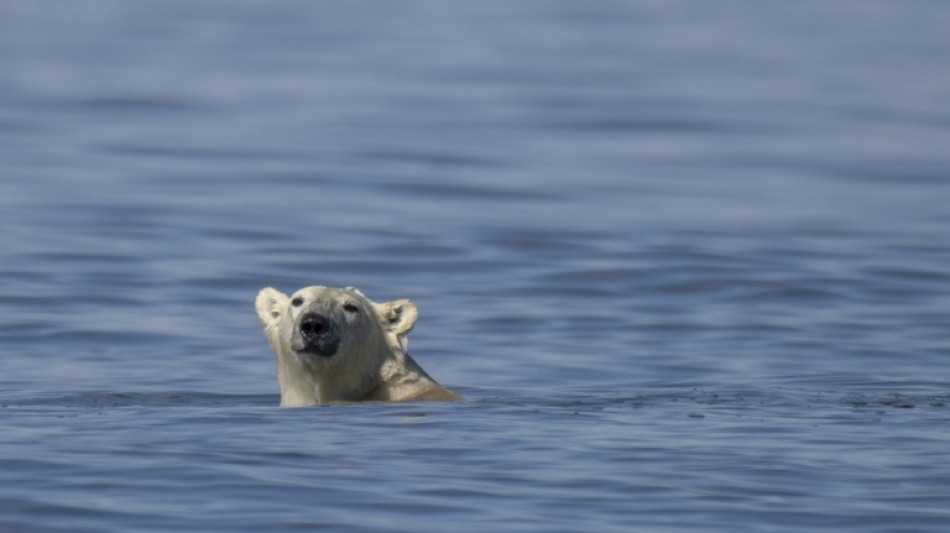
-
 Munsey leads Scotland to 207-4 against Italy at T20 World Cup
Munsey leads Scotland to 207-4 against Italy at T20 World Cup
-
Japan restarts world's biggest nuclear plant again

-
 Bangladesh poll rivals rally on final day of campaign
Bangladesh poll rivals rally on final day of campaign
-
Third impeachment case filed against Philippine VP Duterte

-
 Wallaby winger Nawaqanitawase heads to Japan
Wallaby winger Nawaqanitawase heads to Japan
-
Thailand's Anutin rides wave of nationalism to election victory

-
 Venezuela's Machado says ally kidnapped by armed men after his release
Venezuela's Machado says ally kidnapped by armed men after his release
-
Maye longs for do-over as record Super Bowl bid ends in misery

-
 Seahawks' Walker rushes to Super Bowl MVP honors
Seahawks' Walker rushes to Super Bowl MVP honors
-
Darnold basks in 'special journey' to Super Bowl glory

-
 Japan's Takaichi may struggle to soothe voters and markets
Japan's Takaichi may struggle to soothe voters and markets
-
Seahawks soar to Super Bowl win over Patriots

-
 'Want to go home': Indonesian crew abandoned off Africa demand wages
'Want to go home': Indonesian crew abandoned off Africa demand wages
-
Asian stocks track Wall St rally as Tokyo hits record on Takaichi win

-
 Bad Bunny celebrates Puerto Rico in joyous Super Bowl halftime show
Bad Bunny celebrates Puerto Rico in joyous Super Bowl halftime show
-
Three prominent opposition figures released in Venezuela

-
 Israeli president says 'we shall overcome this evil' at Bondi Beach
Israeli president says 'we shall overcome this evil' at Bondi Beach
-
'Flood' of disinformation ahead of Bangladesh election

-
 Arguments to begin in key US social media addiction trial
Arguments to begin in key US social media addiction trial
-
Agronomics Limited Announces Net Asset Value Calculation as at 31 December 2025

-
 UK-Based Vesalic Limited Emerges from Stealth with Landmark Discovery of Potential Non-CNS Driver of Motor Neuron Diseases, including ALS, and Breakthrough Therapeutic and Diagnostic Opportunities
UK-Based Vesalic Limited Emerges from Stealth with Landmark Discovery of Potential Non-CNS Driver of Motor Neuron Diseases, including ALS, and Breakthrough Therapeutic and Diagnostic Opportunities
-
Gotterup tops Matsuyama in playoff to win Phoenix Open

-
 New Zealand's Christchurch mosque killer appeals conviction
New Zealand's Christchurch mosque killer appeals conviction
-
Leonard's 41 leads Clippers over T-Wolves, Knicks cruise

-
 Trump says China's Xi to visit US 'toward the end of the year'
Trump says China's Xi to visit US 'toward the end of the year'
-
Real Madrid edge Valencia to stay on Barca's tail, Atletico slump

-
 Malinin keeps USA golden in Olympic figure skating team event
Malinin keeps USA golden in Olympic figure skating team event
-
Lebanon building collapse toll rises to 9: civil defence

-
 Real Madrid keep pressure on Barca with tight win at Valencia
Real Madrid keep pressure on Barca with tight win at Valencia
-
PSG trounce Marseille to move back top of Ligue 1

-
 Hong Kong to sentence media mogul Jimmy Lai in national security trial
Hong Kong to sentence media mogul Jimmy Lai in national security trial
-
Lillard will try to match record with third NBA 3-Point title

-
 Vonn breaks leg as crashes out in brutal end to Olympic dream
Vonn breaks leg as crashes out in brutal end to Olympic dream
-
Malinin enters the fray as Japan lead USA in Olympics team skating

-
 Thailand's Anutin readies for coalition talks after election win
Thailand's Anutin readies for coalition talks after election win
-
Fans arrive for Patriots-Seahawks Super Bowl as politics swirl

-
 'Send Help' repeats as N.America box office champ
'Send Help' repeats as N.America box office champ
-
Japan close gap on USA in Winter Olympics team skating event

-
 Liverpool improvement not reflected in results, says Slot
Liverpool improvement not reflected in results, says Slot
-
Japan PM Takaichi basks in election triumph

-
 Machado's close ally released in Venezuela
Machado's close ally released in Venezuela
-
Dimarco helps Inter to eight-point lead in Serie A

-
 Man City 'needed' to beat Liverpool to keep title race alive: Silva
Man City 'needed' to beat Liverpool to keep title race alive: Silva
-
Czech snowboarder Maderova lands shock Olympic parallel giant slalom win

-
 Man City fight back to end Anfield hoodoo and reel in Arsenal
Man City fight back to end Anfield hoodoo and reel in Arsenal
-
Diaz treble helps Bayern crush Hoffenheim and go six clear

-
 US astronaut to take her 3-year-old's cuddly rabbit into space
US astronaut to take her 3-year-old's cuddly rabbit into space
-
Israeli president to honour Bondi Beach attack victims on Australia visit

-
 Apologetic Turkish center Sengun replaces Shai as NBA All-Star
Apologetic Turkish center Sengun replaces Shai as NBA All-Star
-
Romania, Argentina leaders invited to Trump 'Board of Peace' meeting


Polar bears could vanish from Canada's Hudson Bay if temperatures rise 2C
An international team of scientists said Thursday that polar bears faced local extinction in Canada's Hudson Bay by mid-century if global warming exceeds limits set under the Paris climate accords.
Climate change has sharply increased the number of days where Arctic sea ice is too thin for polar bears to hunt seals.
That forces them to spend longer stretches ashore without their main food source.
Using models, researchers considered how future rises in global temperatures could hit ice thickness in Hudson Bay and in turn, the fate of its iconic and endangered polar bears.
They found that if temperatures rose 2 degrees Celsius above pre-industrial levels the resulting ice-free period would simply be too long for many bears to survive.
Bear populations in southern Hudson Bay -- where it takes longer for winter ice to return -- would be the first to go, said the study's lead author Julienne Stroeve.
"Those bears are unlikely to survive in that region" and could disappear by the middle of this century, the Arctic climate scientist from the University of Manitoba told AFP.
The collapse of Hudson Bay's other major bear population in the west would not be far behind, she added. Global warming above 2C would render this habitat increasingly unsuitable for hunting and breeding.
- Struggle to survive -
Under the 2015 Paris agreement, nations agreed to limit temperature rises to well below 2C to avoid the worst effects of climate change, and to strive for a safer 1.5C cap.
Global temperatures are already 1.2C higher than the 1850-1900 pre-industrial era and the world is tracking toward 2.9C of warming by 2100, according to the United Nations.
This has lengthened periods without ice in the fast-warming Arctic, directly affecting polar bears, which need a firm platform to cross the seas and hunt seals, their main prey.
During the summer melt the bears are forced ashore to await the return of winter sea ice, and can shed up to two kilograms a day during this fasting period.
But human-caused climate change has extended the ice-free period in Hudson Bay by a month over the past decade, said the study, published in the journal Communications Earth and Environment.
With 2C of warming, the southern Hudson Bay would be ice-free for more than 180 days -- beyond the "hard limit" of what bears can endure, said Stroeve.
"It might start getting too long, then they won't be able to survive," she added.
This same threshold would be breached in western Hudson Bay at between 2.2C and 2.6C of warming, she said.
- 'Wake up call' -
Longer ice-free periods in Hudson Bay were already impacting polar bear breeding and population numbers, meaning their extinction locally "may already be inevitable", said the study.
"That environment is rapidly changing, and I don't think these ecosystems can adapt as quickly as they need to," Stroeve said. "That's really quite sad for me."
Other research has found that Hudson Bay's bears were trying to adapt to longer periods on land by finding other food, but could not match the calories of their normal marine diets.
The past 12 months have been the hottest in recorded history, with land and ocean temperatures hitting unprecedented highs.
Stroeve said southern parts of Hudson Bay were already ice-free, something that does not normally start happening until early July.
"This is the earliest breakout of ice we've ever seen," she said. "That doesn't spell good news for the bears."
Their findings were a harbinger of polar bear survival elsewhere in the Arctic, she added.
As Hudson Bay's bears are further south than any others, they have long been considered an indicator of how their counterparts further north will fare in the future.
"It sort of gives us a wake-up call. This is starting to be the fate of these bears," Stroeve said.
D.Sawyer--AMWN


